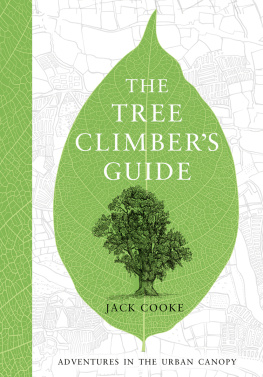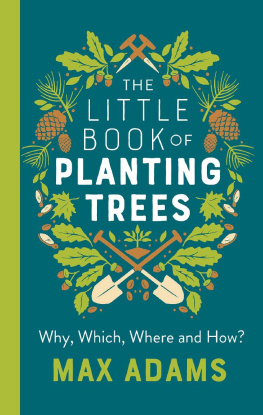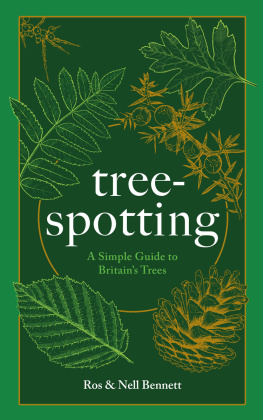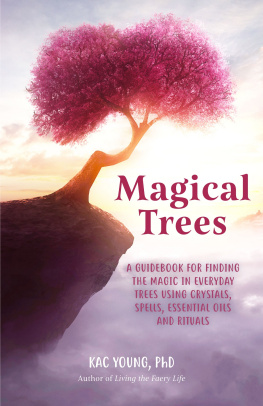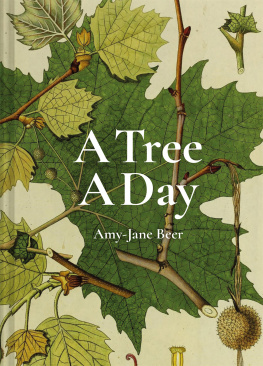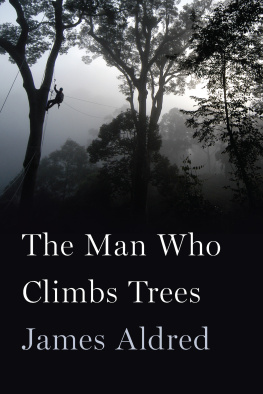Back to the trees! shouted Uncle Vanya. Back to nature!
One thing we rarely do in the city is look up. Only time and weather seem to invade our thoughts as we tramp the urban mile. We may raise our eyes to coming rain or the hours called by clocks, but little else breaks our focus on the way to and from our eternal quest for convenience.
There is another dimension to the city, a world far removed but close at hand. It is a place of limitless space and light, and a simple antidote to the crowds. When we escape into this realm our senses are replenished; we taste cleaner air and see further than the end of the road. Where does this unlikely utopia lie? All around and above you, in the lofty, green canopy of the citys trees.
The city I inhabit is not so very different from any other. Like all cities it is sculpted from the same fixed matter: steel and glass, stone and brick. But like all cities it is underpinned and overhung by nature. Everything man-made is dug into the soil, and beneath the street a vast network of roots threads the land.
I have climbed trees in London, but wherever you live you cannot be far from a low branch. The location of a tree is not as important as the act of climbing; you could be scaling a pine in Glasgow or an oak in Rome. Trees offer a way up and out of every city in which they thrive.
There are an estimated seven million trees growing across London, almost a tree for every man, woman and child living in the city. They are as varied and individual as Londons human inhabitants, from hoary old veterans to assertive young saplings, and as a would-be climber of their branches you have a lot of introductions to make.
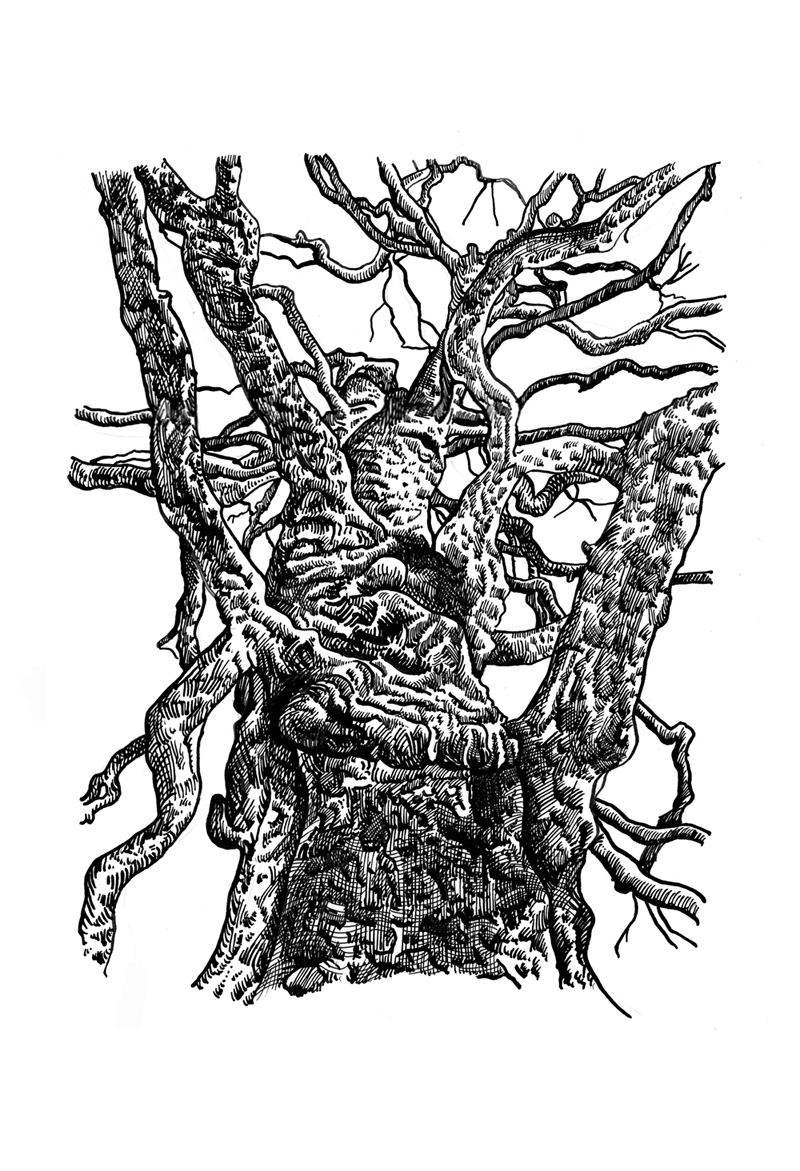
The premium commodity in cities is space space and the terrible lack of it. A recurring bass line in our media is the ever-increasing rent to be paid for one house, one flat, one room, one box. Londons human-built habitation has become inflated beyond recognition, yet the city retains a set of residents who enjoy its most exclusive addresses, the best access and architecture, and the finest views. These lucky few are not the skyscraper elite in their capsules of glass and steel, nor the sprawling mansion dwellers of Hampstead and Chelsea. There exists another kind of penthouse, and its occupants the humble bird and beast live in it for free. They are rooted in the city but apart from it; the space is in the tree tops.
London is a verdant metropolis, with more parks and green spaces than any other capital of comparable size. At whatever compass point of the city you find yourself, youre never far from a break in the asphalt and a climbable tree. Climb a few feet up and out, and youre suddenly suspended above the crowds, alone on your perch and enjoying a fresh breeze.
This book aims to give the reader a new AZ, one that runs from Ash to Zelkova, offering escape wherever you find yourself. It is not a survey but a personal selection, representing the very tip of a deep arboreal iceberg. Variety is at the heart of climbing trees, and I hope to inspire others to go out and find their own citadels.
There are, of course, obstacles to us claiming the citys forgotten paradise but, fortunately, they exist largely in our own heads. The two greatest of these, fear and shame, hinder and guard us at all times. Taken together they form a powerful anchor that keeps most of us firmly grounded.
The first emotion is natural and healthy. Fear is the backbone of survival and no bad thing. It seems rational to look up into a fifty-foot oak, the wind shaking its crown, and decide that you are better placed on terra firma. But if we analyse this fear, we see that it can also be limiting; its a feeling based more on a phobia of the unknown than a fear of falling. Although we no longer possess the mighty forearms of our hominid ancestors, human biology still makes us remarkably adept tree climbers. We came from the trees and we can return to them. Starting small, youll find that oak, ash, pine and cedar offer ladder-like ascents on firm boughs. Your balance and agility might be better than you suspect.
As we get older and grow out of many childhood fears, we develop others. We no longer dread what lies beneath the bed, but those who once sprung off trampolines now fear anything higher than a stepladder. Mounting the kitchen sideboard or reaching to close a window we find ourselves suddenly dizzy, reeling at a sheer drop of three feet. In such instances vertigo is an irrational response. Just like the rabbit in the headlights, it serves no evolutionary purpose; fear is there to be subordinated to our willpower. The humanzee may overcometh.
The second obstacle, shame, is the harder to surmount. This is because its so deeply ingrained, a tragic part of our social conditioning. There seems to be a common perception that climbing trees is not at all respectable. Like so many precepts that bind us as adults, its just not what grown-ups do. Long labelled the preserve of children by the unimaginative, an adult in a tree is drunk, deranged, suicidal or a combination of all three. We are denied the pleasures of the trees by our own self-policing, by the roles we assume in this protective and circumscribing society.
For a grown man or woman, then, climbing a tree is out of the question. No matter how much he or she recounts green-at-the-knee tales of childhood climbs, no responsible citizen would shimmy up a willow. On the rare occasions adults do venture into the trees its usually to impress friends and show off, which should never be the inspiration or goal of climbing.
Conquering fear and shame is as much about rediscovering our beginnings as abandoning our tame maturity. The adult measures enjoyment against the future, pausing at the foot of the tree, while the child lives in the moment. The instant that you value a new set of clothes over a new experience you have forgotten how to enjoy yourself. We must grow as children, not shrink as adults.
If you are ready to master these emotions, a new haven lies waiting for you. Before long you can be ten, thirty or fifty feet above your surroundings. It is an addictive experience, and the best trees can be enjoyed from their lowest branch to their topmost. Swing out onto a low perch and dangle your legs a few feet off the ground. Climb a little higher and edge out of sight. Still higher, and you will find different windows opening on the world below, a new perspective on the city with every branch you grasp.

